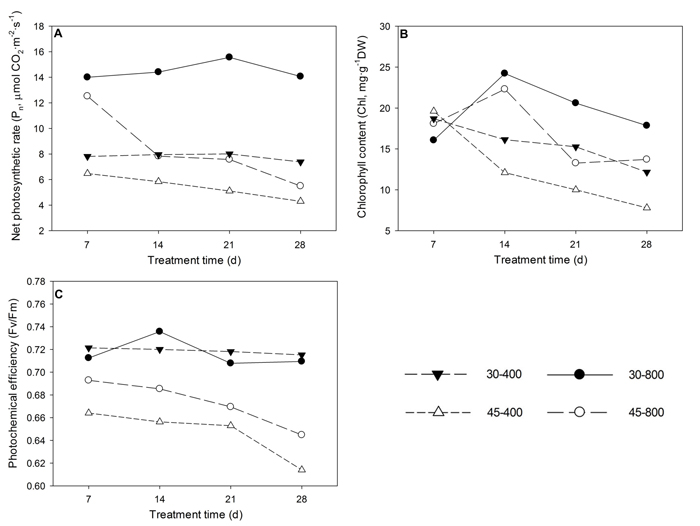| Tweet | Follow @co2science |
Paper Reviewed
Yu, J., Li,, R., Fan, N., Yang, Z. and Huang, B. 2017. Metabolic pathways involved in carbon dioxide enhanced heat tolerance in bermudagrass. Frontiers in Plant Science 8: 1506, doi: 10.3389/fpls.2017.01506.
Writing as background for their work, the five-member research team of Yu et al. (2017) note that "elevated temperature exacerbates heat damage [in plants], but elevated CO2 has positive effects on promoting plant growth and heat tolerance." Seeking to obtain new insight into the mechanisms driving CO2-mitigated effects of heat stress in plants, the Chinese researchers set out to conduct an experiment on a C4 perennial grass species. More specifically, they grew bermudagrass (Cynodon dactylon), a widely used forage and turfgrass species, in a controlled-environment greenhouse under either ambient (400 ppm) or elevated (800 ppm) CO2 conditions for 70 days under a day/night temperature regime of 30/25°C, after which they exposed a portion of the plants in each CO2 treatment to heat stress (day/night temperature of 45/40°C) for one month. Measurements of a number of growth-related parameters were obtained on plants growing in the different treatments during this later stage of their analysis. Additionally, the authors extracted and analyzed metabolites and proteins from the leaves of plants growing in each treatment in an effort to identify metabolic pathways affected by elevated CO2 that might influence the heat stress response of C. dactylon.
In describing their findings, Yu et al. report that elevated CO2 enhanced net photosynthesis and the chlorophyll content of bermudagrass under both normal and heat-stressed temperatures (see Figure 1). Additionally, elevated CO2 significantly enhanced plant photochemical efficiency under heat stress conditions, which combined findings led the authors to conclude that "elevated CO2 concentration suppressed heat-induced damages and improved heat tolerance in bermudagrass."
With respect to how the CO2-induced heat tolerance occurred, Yu et al. say that it "could be associated with some important metabolic pathways during which proteins and metabolites were up-regulated, including proteins, sugars and/or amino acids involved in light reaction (ATP synthase subunit and photosystem I reaction center subunit) and carbon fixation of photosynthesis (GAPDH, FBA, PGK, SBPase and sugars), glycolysis (GAPDH, glucose, fructose and galactose) and TCA cycle (pyruvic acid, malic acid and MDH) of respiration, amino acid metabolism (aspartic acid, methionine, threonine, isoleucine, lysine, valine, alanine and isoleucine) as well as the GABA shunt (GABA, glutamic acid, alanine, proline and 5-oxoproline)." Whatever the mechanism(s), one thing is sure, elevated CO2 does indeed promote plant growth and heat tolerance!

Figure 1. Effects of elevated CO2 concentration (800 ppm vs. 400 ppm) on net photosynthetic rate (Panel A), chlorophyll content (Panel B) and photochemical efficiency (Panel C) in response to heat stress in bermudagrass. The treatments symbols are 30 and 45 for normal temperature control and heat stress and 400 and 800 for ambient CO2 and elevated CO2 concentrations, respectively. Adapted from Yu et al. (2017).




